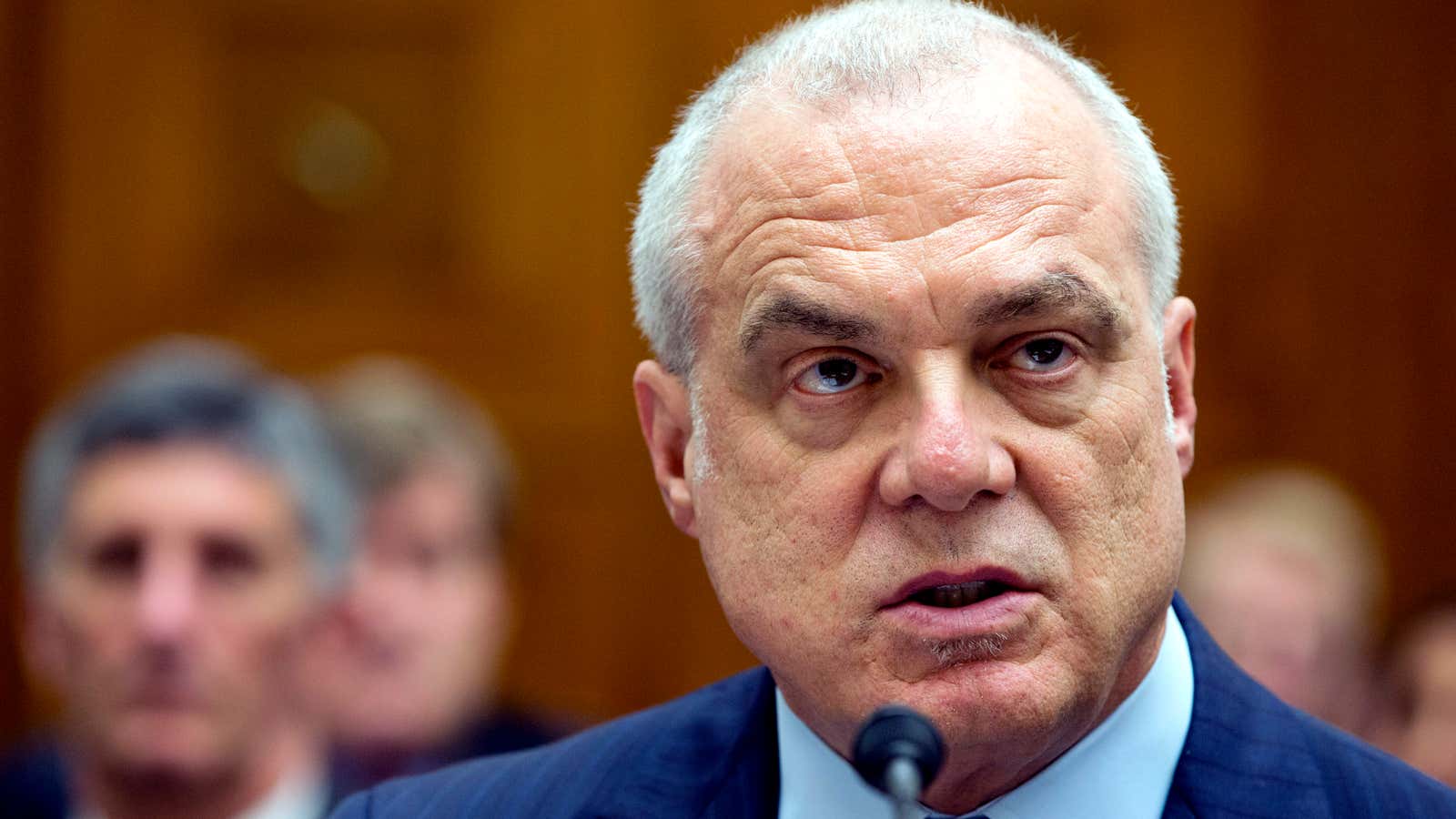Aetna, one of the largest health insurers in the US, has announced it will largely pull out of the marketplaces created in the health-care overhaul signed by president Barack Obama, a setback for the law and a reminder that the next president will need to tinker with the system if affordable, universal coverage is to be reality.
Aetna covers about 900,000 customers who have purchased insurance through the exchanges created by the Affordable Care Act. That’s about 7% of the 12.7 million people who obtain their health insurance this way.
The exchanges were designed to fix a broken individual-insurance market. Under the law, the government won’t let insurers deny claims based on pre-existing conditions, and demands they spend a certain amount on care versus administration, while Americans are required to purchase some kind of health insurance and can obtain subsidies for it on the exchanges.
On one level, these marketplaces have been a success, helping to enroll millions of Americans at premiums that, in 2016, are on average $600 cheaper than the government forecast when the law was enacted in 2010. But there are also about 8 million fewer enrollees than forecast.
Both of these trends have made business tough on the insurers. They have wound up insuring fewer people than anticipated, who have paid less and, in general, are less healthy and therefore more expensive to cover. Aetna CEO Mark Bertolini said the company would lose $300 million this year selling insurance through the exchanges, though Aetna’s overall earnings are set to increase year on year.
Similar complaints came from insurers Humana and United Health, which also announced they would leave the exchanges this year.
“It’s no surprise that companies are adapting at different rates to a market where they compete for business on cost and quality rather than by denying coverage to people with preexisting conditions,” Kevin Counihan, the government official who serves as CEO of the exchanges, said in a statement.
The inability of the marketplaces to keep insurance companies happy stems from several factors:
The number one challenge is still affordability. Consumers are doing one thing the law’s backers hoped: They are looking for the cheapest plan, part of the cost discipline imposed on insurers by the market. But that has left the sickest consumers purchasing the most expensive plans while healthier ones purchase the cheapest, exacerbating insurers’ ability to spread risk evenly. And even with the subsidies provided for by the law, many still can’t afford the best insurance plans.
Execution is still a challenge. There are an estimated 7 million people eligible for subsidies on the exchanges who simply haven’t signed up through healthcare.gov, either because they are not aware of the process, found it too hard, or believe they will not be eligible.
Employers are still providing the most insurance. The authors of the Affordable Care Act expected that employers would begin declining to provide medical insurance if consumers could purchase it themselves on the exchanges, but the number of people on employer-provided plans hasn’t changed. Part of that is because Congress chose to delay the imposition of higher taxes on employer health benefits, which are currently untaxed and prone to bloating.
Insurance company machinations. Critics of insurers, like Massachusetts senator Elizabeth Warren, are quick to note that Bertolini called the exchanges a good investment back in April before deciding four months later to pull out of them. What changed? A key factor, critics say, is that the US Department of Justice chose to fight two insurance-industry mergers, one between Aetna and Humana and another between Anthem and Cigna. The companies say the combinations are necessary to compete in the modern insurance market. But the DOJ sued in July to block the deals, saying it couldn’t countenance five major insurers becoming three (the fifth being UnitedHealthcare, which isn’t involved in either of the contested mergers).
Whatever the reasons for the insurers’ retreat from the exchanges, something will need to be done. Government administrators of the exchanges have acknowledged that the current formula for reimbursing insurers “cannot easily adjust” for the high costs the companies are facing, and have floated ideas to increase the subsidy that insurers receive for high-cost patients.
“The current risk adjustment mechanism does not include pharmacy,” Bertolini told investors in August. “Nobody is getting adequately reimbursed, and given that the risk adjustment mechanism is a zero sum game, there is no way to fix this unless we include pharmacy.”
The fix, now, will fall to the next president. In the case of Hillary Clinton, it will involve coaxing what is likely to be a still-recalcitrant Congress into making some adjustments to the ACA to keep the marketplaces afloat and universal coverage within reach. Her outreach could culminate in a state-level public insurance option.
Meanwhile, Donald Trump’s scheme to repeal Obamacare and deregulate the insurance industry is Republican standard-issue. It gains little respect from health-care experts, but few expect that any GOP president would be willing to dismantle a health-care law that, for all its flaws, brought millions into the market and lowered the rate of health-care cost inflation.
